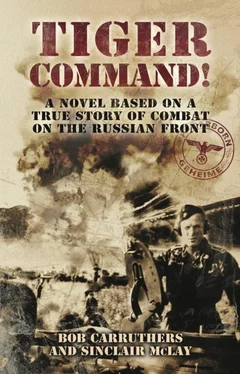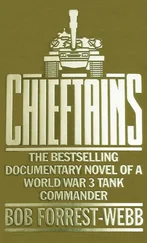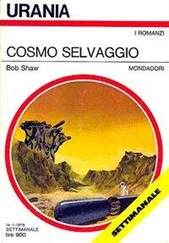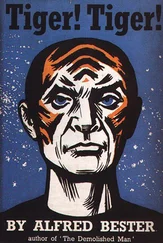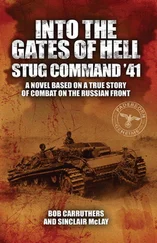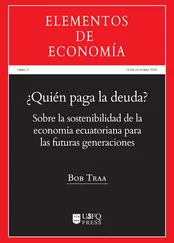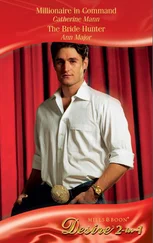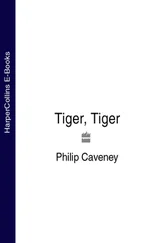The crew looked on in awe at the activity around them as they strode through the plant, led by Doctor Kurt Arnholdt and a group of other representatives of the Henschel Company. Amongst the party was the familiar figure of Major Jurgen Rondorf. As they passed a wall covered in propaganda posters, Otto Wohl paused before a yellowing placard for the Winter Relief Fund and began to read.
“No one will be allowed to go hungry!” screamed the poster.
“So, we’re not even allowed to do that now!” said Wohl mischievously.
A glance from Knispel conveyed the message to Wohl that he was on thin ice, and the loader wisely decided that it was best if he didn’t criticise Knispel’s beloved party, for now at least.
Eventually the party came to a hospitality area where bottles of beer and wine were being opened by pretty waitresses. Glasses were soon filled all round.
“Gentlemen! My good friend, Major Rondorf here, tells me that the term ‘flying colours’ is too inadequate a description to describe your achievements in passing all the tests at Paderborn! Congratulations, and proscht!” exclaimed Kurt Arnholdt.
“Proscht!” bellowed the Tiger men, draining their glasses, and, by their body language, indicating that they would happily engage in a further toast.
“Major Rondorf is too kind and generous a man to admit to the extent of our daily struggles. He is also too modest to admit to his invaluable efforts at cajoling and educating us Tiger novices!” said Hans von Schroif.
“Come now, Haupsturmführer,” replied Rondorf, “it is you who are being too modest. Good teachers could not exist without willing and able pupils. How was your journey?”
Hans von Schroif could have elaborated on the unfortunate incident on the train, but he chose not to. Instead, he opted to be positive.
“The journey was slow, but it may yet prove invaluable, Herr Major. Wendorff here has hit upon an ingenious plan to create a new manual, which the Tiger men hope will be interesting and accessible… Without going into too much detail, it involves an ‘assistant’ who, we could say, troops at the front may find rather… how shall we say… ‘fetching’.”
Major Rondorf accepted the new illustrated Tiger manual and, with Arnholdt looking on, began to flick through the pages with interest.
“My dear von Schroif, anything that helps our men memorise the vital information in that manual is to be welcomed,” said Arnholdt.
“Let’s just hope your ‘assistant’ is not so well drawn as to be distracting!” noted Major Jurgen. “But this is a good idea. I’ll pass it on to Guderian’s office with a recommendation that it be published.”
“Thank you, Herr Major. The idea is that it should be small enough to fit into a battle dress pocket.”
“Rather the Tigerfibel than Die Wundertüte, eh, Wohl?” said Major Rondorf.
As they laughed and joked, the small group moved on to the first part of the factory. Thousands of workers found employment here. The all-pervasive hum and buzz, and the unremitting crash of metal upon metal, indicated an industry and effort which could only give comfort to those who served at the front. Places like these were indeed the engines which helped the German army move forward and on!
“Now I shall pass you over to Herr Arnholdt, who has arranged a brief tour of the facilities here, which will hopefully add to your appreciation and knowledge of the vehicles which are about to pass into your care.”
As Kurt Arnholdt led the group off to the giant doors at Werk 3 to begin their tour, Hans received a gentle dig in the ribs from Bobby, who motioned to another group of men some way off, one of whom was the very Heinrich Bremer that they had encountered only an hour ago on the train.
Hans fell into line beside Major Rendorf and discreetly enquired about the group.
“Our friends from RHSA,” replied Rendorf.
“But why are the Gestapo here?” asked von Schroif.
“It’s a delicate matter, but there have been rumours of plans to sabotage production,” interjected Arnholdt.
“Sabotage?” replied von Schroif incredulously. “Take them out and have them shot! What kind of German worker…? That’s treason!”
“As I said,” continued Jurgen, “it is a delicate matter, and not all the workers here are of good German stock and foundation. There is a shortage of labour. Production must be maintained. So, workers are drawn from what might be termed less ‘patriotic’ pools.”
“You mean you have foreign workers here? In the name of God, you are not telling me that Soviet prisoners have been entrusted with the job of building tanks which they know are being sent out to kill their comrades? That’s insane!”
“Soviet prisoners, hopefully, I would doubt. I think the vast majority are from Germany, or our allies, but I fear◦– and this goes no further◦– that there may be a large measure of malcontents: social democrats, communists, religious extremists… and the situation is not helped by their working conditions.”
Hans von Schroif was outraged. He had heard rumours of forced labour, but there was a war on, which allowed for a slight relaxation of civilised norms. There would be time enough for considerations of an ethical nature. It was the practical aspect that perturbed him the most at that moment. The lives of his men depended on these machines. At each and every moment, he and his crew had the right to expect that everything possible was being done to make them as reliable as possible. They had to trust every gear wheel, every weld, and every join. It reminded him of the old saying: “Would you accept a meal served up by a bitter cook?”
“I can sense your anger, Hauptsturmführer. The situation is not ideal. Circumstances dictate. Let us just be confident that these arrangements do not end in tragedy.”
Kurt Arnholdt then called them together to commence the tour. He seemed full of pride, so von Schroif decided that it was best to put his concerns to one side and let Arnholdt take centre stage.
“Gentlemen, this is where the hulls arrive. We do not have the correct facilities here for construction of the hulls, or the turrets for that matter, so they are prefabricated at Krupp’s and Dortmund-Hoerder Huettenverein, the turrets by Wegmann and Company, and delivered here to be precision-tooled and transformed into fighting machines worthy of the Wehrmacht. The assembly line consists of nine discrete stages which we refer to as takt. At the moment, each takt involves around six hours per tank◦– a time which we can hopefully reduce in order to meet, and exceed, our production targets.”
Kurt Arnholdt was in his element as he led the group along the line, pointing out all the functions and roles of the workers, the piles of stacked components, and the special tools and presses needed to assemble one single tank. Granted, he was having to shout to be heard over the din, but here was a man who had found a role he obviously relished!
“Takt 1, gentlemen. After taking delivery of the prefabricated hulls by rail, we carry out the great endeavour of unloading. As you can see by this hull here, there is almost everything still to do. Notice that the only post-fabrication work before it arrives is the boring of a few holes; everything else is carried out in these works.
“Next, we move on to takt 2, where we prepare the hulls by boring holes for the suspension arms. This is done by this six-spindle borer. The next stage of takt 2 is carried out by a four-spindle borer, which finishes the holes for the final drives and idler arms.”
Hans von Schroif found the whole thing fascinating, and was pleasantly surprised to see Bobby Junge paying close attention and engaging Arnholdt in conversation with intelligent and informed questions. Michael Knispel too, seemed transported. He also noticed Heinrich Bremer and his associates peering closely at the group and talking together. Surely they were not under scrutiny?
Читать дальше
